Mozambique: President extends condolences on passing of former Zambian President Edgar Lungu
Complaint filed over incompatibility of the offices of President of Mozambique and President of the Frelimo party – DW

File photo: O País
A group of citizens has submitted a complaint to the Constitutional Council against Filipe Nyusi for serving simultaneously as President of the Republic and leader of Frelimo, and “unprecedented fact” could have a “huge” impact, says a member of parliament.
The group of 10 citizens invokes article 149 of the Constitution of the Republic of Mozambique. Article 149 establishes that “the President of the Republic may not, except in cases expressly provided for in the Constitution, exercise any other public function and, under no circumstances, perform any private functions”.
The complainants understand that, by presiding over Frelimo, the party in power, Filipe Nyusi is violating this principle.
In an interview with DW, Frelimo deputy António Boene, the president of the First Commission of the Assembly of the Republic, understands that this is an “unprecedented fact” and if the Constitutional Council decides in favour of the complainants, this will have a “huge” impact on the country.
“People are already used to seeing an all-powerful president,” says Boene, and reducing the political power of the President of the Republic would “probably” not be “easy to accept”, he says.
DW Africa: Is this complaint valid, taking into account the Mozambican political reality?
António Boene (AB): In formal terms, the 10 citizens have the legitimacy to request that type of action. Now, it is necessary to materially verify that they would also respect what is established in the Organic Law of the National Council for carrying out this type of action.
DW Africa: This issue of incompatibility is an old debate. In your opinion, why does the President of the Republic continue to play the role of President of the Republic and, at the same time, leader of the party?
AB: This is already a repeated practice, which is still closely linked to the very nature of the Frelimo party. It is the first time, at least that I am aware of, that a group of citizens or any other entity has submitted this type of action to the Constitutional Council. Now, the Constitutional Council must naturally decide and, as a result, jurisprudence will be followed and, from then on, naturally, we will have to obey or respect the decision that will be taken by the Constitutional Council, because it is unappealable and has immediate application.
DW Africa: If the Constitutional Council decides in favour of the complainants, what impact could this have on the reorganization of the Mozambican state?
AB: Huge, because, in terms of conception, the Frelimo party itself was never able to even conceive of the possibility of someone who was not president of the party being able to run the state or someone appointed by the Frelimo party not being able, simultaneously, to run the state and also lead the party. This, naturally, will change the entire paradigm that has existed until now and we will begin to think seriously, if that is the case, about having another kind of bicephaly of power in this country, that is, political power rooted in the party and then the power of the state, exclusively of the state, which will, naturally, be domiciled in the head of the state. And it will, naturally, be a new experience.
DW Africa: New coexistence, but also very difficult.
AB: It’s true. And that also takes me to another perspective. Isn’t it time to start thinking about our system of governance, having a President of the Republic who does not represent any party and is there to serve all Mozambicans and there is no reason to distrust that one party or another could benefit and we have a government that will be the real executive. Who knows, maybe we are thinking about a presidential system or a parliamentary system?
DW Africa: As a deputy, do you think this will be easily accepted by the powers already established in the country?
AB: No, no, no. It will be very complicated. In fact, this is even a cultural issue, people are already used to seeing an all-powerful president and reducing powers to the president, especially political power to the President of the Republic, is probably not easy to accept.
DW Africa: And the fact that this question was submitted almost at the end of a mandate, won’t it have an impact on the new executive that will emerge from the October elections?
AB: If the Constitutional Council decides this in good time and if it is in favour of the wishes of these groups of citizens, then it means that the President of the Republic will be in a situation in which he will have to choose whether to resign as head of state or to resign from his position as party president. Any of these decisions will naturally have its consequences and repercussions both at the level of the state and also at the level of the Frelimo party itself, if by chance the Frelimo candidate is elected President of the Republic, this already conditions his mandate in the new legislature.


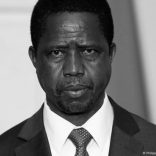
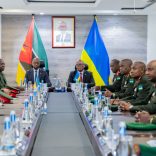

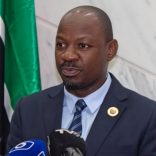
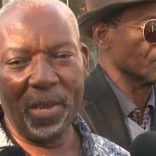
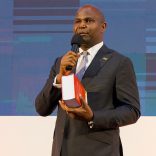




Leave a Reply
Be the First to Comment!
You must be logged in to post a comment.
You must be logged in to post a comment.